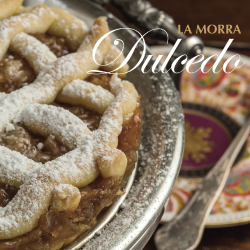コリーナ・マルティ|チェンバロ|リコーダー
コリーナ・マルティ|チェンバロ|リコーダー
ルツェルン・アカデミー・オブ・ミュージックにて、リコーダーとチェンバロのバロック音楽奏法を学んだ後、バーゼル・スコラ・カントールムで中世リコーダーと中世後期~初期ルネサンス音楽をピエール・アモンとキャスリン・ボップの元で専門に学び、同校にて学位を取得。スイスやポーランドをはじめ数々のコンクールで、優勝や入賞を果たしている。
オランダ・ハーグ王立音楽院や、テル・アヴィヴ音楽院、ブレーメン音楽大学など、これまでに、ヨーロッパ、中東、北米を、中世後期~初期ルネサンス音楽の演奏、録音、また指導のために度々訪れている。2003年よりバーゼル・スコラ・カントールムの講師として招かれ、中世リコーダーと鍵盤楽器のクラスで後進の指導にあたっている。彼女がそれらの楽器の演奏や研究をすることにより、歴史に埋もれた数多くの知られざる作品が現代に蘇っている。ソロ活動の傍ら、室内楽奏者としても活躍しており、これまでにジュルディ・サヴァール、エスぺリオンXXIやラ・カペッラ・レイアル・カタルーニャと共演し、ルネサンス、バロック、現代音楽などの作品にも取り組んでいる。マルティが共同監督を務めるアンサンブル、ラ・モッラは、ディアパソン・ドール賞、ドイツ年間批評家賞などを受賞したヨハンネス・チコーニア作品全集を含む、15世紀~16世紀初頭の作品を録音したCDを数多くリリースしている。また、彼女の最古の器楽作品へのあくなき探究心により、リュート奏者ミハウ・ゴントコと共に15世紀後半から16世紀初頭のドイツの作品を収録した「デュファイ/ブリントハーマー/コッター/ブフナー:15世紀ドイツの鍵盤楽器とリュートのための作品集」(2008年Ramée)や、彼女の最初のソロ・アルバム「中世のチェンバロと笛の調べ – 中世北イタリア, ゴシック期の器楽芸術」(2012年Ramée)などのCDがリリースされるに至った。その他、いまや1500に届く勢いのディスコグラフィーには、イタリア・ロンバルディアの初期バロック器楽曲集、イタリアのユダヤ人作曲家サラモーネ・ロッシ(1570-1630)の作品集、J.S.バッハのフルート・ソナタ集、「マンチーニ:12のリコーダー協奏曲」(2012年Brilliant Classics)、シャルル・デュパールの室内楽作品集「Les Suites」(2015年Carpe Diem)、「A.スカルラッティ:合奏協奏曲形式の12のシンフォニア」(2015年Brilliant Classics)などがあり、いずれも高く評価されている。近年では毎年来日し、コンサートやマスタークラス等で活躍の場を広げている。
オランダ・ハーグ王立音楽院や、テル・アヴィヴ音楽院、ブレーメン音楽大学など、これまでに、ヨーロッパ、中東、北米を、中世後期~初期ルネサンス音楽の演奏、録音、また指導のために度々訪れている。2003年よりバーゼル・スコラ・カントールムの講師として招かれ、中世リコーダーと鍵盤楽器のクラスで後進の指導にあたっている。彼女がそれらの楽器の演奏や研究をすることにより、歴史に埋もれた数多くの知られざる作品が現代に蘇っている。ソロ活動の傍ら、室内楽奏者としても活躍しており、これまでにジュルディ・サヴァール、エスぺリオンXXIやラ・カペッラ・レイアル・カタルーニャと共演し、ルネサンス、バロック、現代音楽などの作品にも取り組んでいる。マルティが共同監督を務めるアンサンブル、ラ・モッラは、ディアパソン・ドール賞、ドイツ年間批評家賞などを受賞したヨハンネス・チコーニア作品全集を含む、15世紀~16世紀初頭の作品を録音したCDを数多くリリースしている。また、彼女の最古の器楽作品へのあくなき探究心により、リュート奏者ミハウ・ゴントコと共に15世紀後半から16世紀初頭のドイツの作品を収録した「デュファイ/ブリントハーマー/コッター/ブフナー:15世紀ドイツの鍵盤楽器とリュートのための作品集」(2008年Ramée)や、彼女の最初のソロ・アルバム「中世のチェンバロと笛の調べ – 中世北イタリア, ゴシック期の器楽芸術」(2012年Ramée)などのCDがリリースされるに至った。その他、いまや1500に届く勢いのディスコグラフィーには、イタリア・ロンバルディアの初期バロック器楽曲集、イタリアのユダヤ人作曲家サラモーネ・ロッシ(1570-1630)の作品集、J.S.バッハのフルート・ソナタ集、「マンチーニ:12のリコーダー協奏曲」(2012年Brilliant Classics)、シャルル・デュパールの室内楽作品集「Les Suites」(2015年Carpe Diem)、「A.スカルラッティ:合奏協奏曲形式の12のシンフォニア」(2015年Brilliant Classics)などがあり、いずれも高く評価されている。近年では毎年来日し、コンサートやマスタークラス等で活躍の場を広げている。
Corina Marti | Harpsichord | Recorder
Corina Marti is recognized internationally for her “strikingly superior and expressive” interpretations (Toccata), and “infallible” performances (Diapason).
She leads a full life as a soloist, chamber musician and teacher, travelling regularly across Europe, North and South America, the Middle and Far East.
Her extensive discography of repertoire ranges from the fourteenth-century istanpitte and intabulations to – and beyond – the chamber music and solo concertos of the High Baroque, and reflects the breadth of her musical interests and technical skills.
She has appeared with numerous early music ensembles and orchestras (including Hespèrion XXI, Coro della Radiotelevisione Svizzera Italiana and the Helsinki Baroque Orchestra), and is artistic co-director and founding member of La Morra, an award-winning Late Medieval and Early Renaissance music ensemble which “never fails to keep the listener’s attention alive” (Gramophone).
Her ongoing research into aspects of the repertoire and the reconstruction of Late Medieval and Early Renaissance keyboard instruments and recorders has contributed substantially to the present-day revival of these instruments. She teaches the next generation of early music performers at the Schola Cantorum Basiliensis in Basel, Switzerland, and in masterclasses worldwide.
She leads a full life as a soloist, chamber musician and teacher, travelling regularly across Europe, North and South America, the Middle and Far East.
Her extensive discography of repertoire ranges from the fourteenth-century istanpitte and intabulations to – and beyond – the chamber music and solo concertos of the High Baroque, and reflects the breadth of her musical interests and technical skills.
She has appeared with numerous early music ensembles and orchestras (including Hespèrion XXI, Coro della Radiotelevisione Svizzera Italiana and the Helsinki Baroque Orchestra), and is artistic co-director and founding member of La Morra, an award-winning Late Medieval and Early Renaissance music ensemble which “never fails to keep the listener’s attention alive” (Gramophone).
Her ongoing research into aspects of the repertoire and the reconstruction of Late Medieval and Early Renaissance keyboard instruments and recorders has contributed substantially to the present-day revival of these instruments. She teaches the next generation of early music performers at the Schola Cantorum Basiliensis in Basel, Switzerland, and in masterclasses worldwide.

